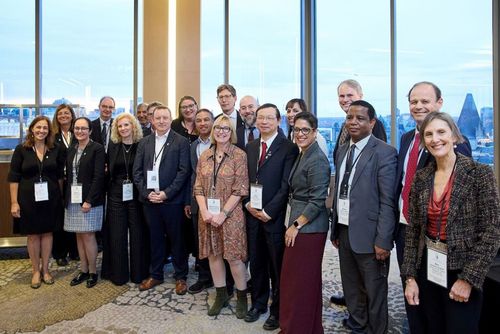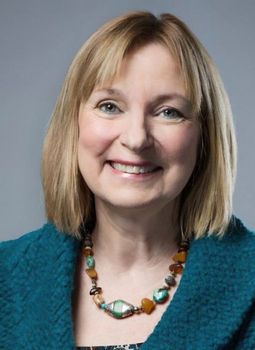
Science in the service of the population
Canadian Academy of Health Sciences [ACSS] Other learned societies are well known in English Canada, but less so in Quebec; “There are really two isolations,” says Marie-France Renaud, professor emeritus in the Department of Social and Preventive Medicine at the University of Montreal. If in the past Quebecers were not much interested in this kind of honorary structure, “things have changed,” the academy’s new president asserts. Raising awareness of the organization is one of her goals, as she became a member in 2007 and has served on its board of directors since 2019.
Get out of your ivory tower
Marie-France Renaud
Credit: Courtesy
The role of the three Canadian scientific societies (the Royal Society of Canada, the Canadian Academy of Engineering, and the American Social Science Association) has been evolving for a long time, in the early 2000s. “The Canadian government wanted these associations to also be of service to the population and could conduct science-based assessments to assist Canadian decision-makers,” says Marie-France Renaud. In 2004, the Canadian Institute of Academic Medicine became the Canadian Academy of Health Sciences.
“The Academy has transformed from a very honorary organization, which welcomed mainly medical researchers, to an academy that is diverse in its professional contributions,” she points out. Nurses, veterinarians, dentists and ethicists, among others, now have a voice, and the organization also recognizes the contribution of the social sciences to health as well as the expertise of high-level officials in the health system.
By adopting an evidence-based approach, ACSS’s mission is to produce assessments that it presents to government and governing bodies to improve the health of Canadian populations. “We do not make recommendations, but we identify possible solutions,” says Marie-France Renaud.
If the Academy traditionally proposes topics for examination, it has realized that the scope of its assessments is greater “when there is interest from people,” the president exclaims. Therefore needs are discussed with various agencies and the topics covered are varied: autism, dementia, fetal alcohol syndrome, human resources in health, etc. In addition to identifying scientific literature, Academy members consult organizations and people affected by the disease. Topics discussed.
“It’s an interesting way to do science: we share and exchange knowledge rather than doing science in isolation,” she says. After the evaluation, we can say that we have considered the problem and the possible solutions have been validated with the people who will have to take action.
Have an impact
The Academy allows its members to have a real impact on public policies and decisions. “The recent evaluation of human resources for health to ensure sustainable succession was used by the Canadian Institutes of Health Research to call for proposals in this area,” says Marie-France Renaud. We are not a lobby. Our members are people who have achieved things in their careers and are willing to serve the Canadian population on a volunteer basis. To increase their participation in parliamentary committees, the Academy held training courses for its members on this topic.
Because for the President, being a research professor comes with a responsibility to the Canadian people. “Society has expectations of us that are legitimate. They have invested in our college careers and we can give back in proportion to our skills.
Invitation to participate
Within her goal of better familiarizing the Quebec research community with the ACSS and recognizing expertise in francophone research, Marie-France Renaud hopes to see all relevant faculties of the university nominate candidates from the faculty and support them in their candidacy. “I personally knew nothing about the academy in 2007. It was the dean of the UdeM Faculty of Medicine at the time, Jean-Lucien Rollo, who convinced me to submit my application and “helped prepare this case,” he says.
Researchers who wish to become members of the ACSS must already be sponsored. The online nomination process will begin in January. A perfect opportunity for them to increase their influence. “Most health researchers don’t just publish. Scientific recognition is good, but using the knowledge is the greatest reward. Some people don’t find the right place to do that, but that’s what the academy offers.”

“Organizer. Social media geek. General communicator. Bacon scholar. Proud pop culture trailblazer.”

